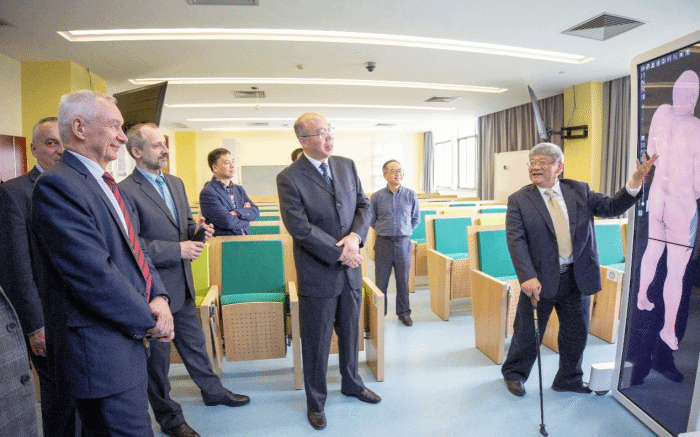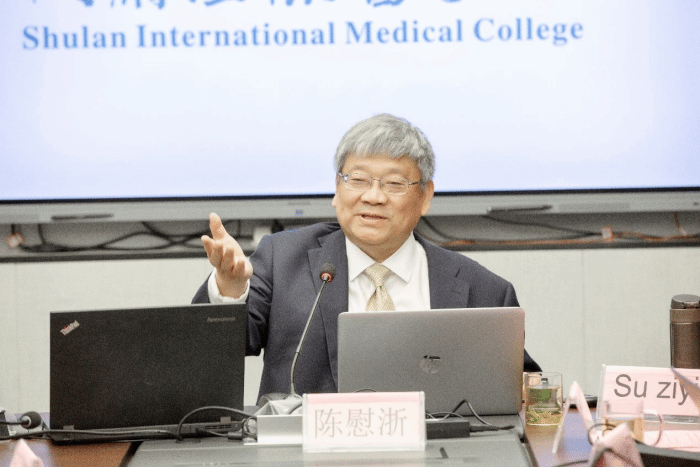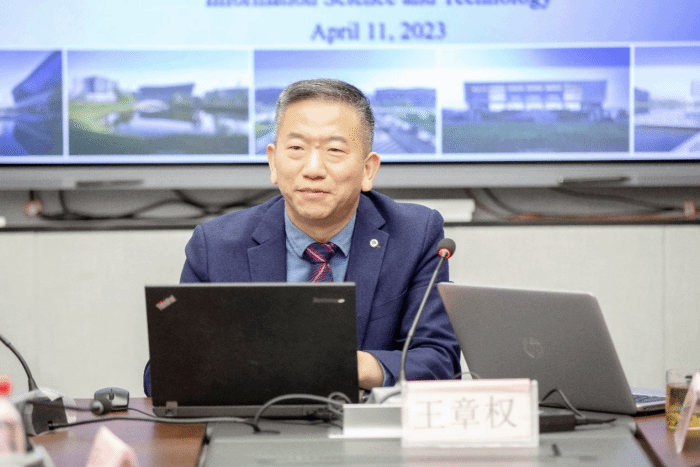On April 11, the Chinese-Belarusian Expert Exchange Meeting hosted by the School of Information Science and Technology was held in a warm and friendly atmosphere in the meeting room of the International Science and Technology Cooperation Base for Remote Sensing Image Processing and Application. Ye Shiping, Vice President and Director of the International Science and Technology Cooperation Base for Remote Sensing Image Processing and Application of our university, delivered a speech. The attendees of this meeting included Wang Wanliang, Dean of the School of Information Science and Technology, Chen Weizhe, Executive Dean of Shulan International Medical College, Wang Zhangquan, Secretary of the Party Committee and Executive Deputy Dean of the School of Information Science and Technology, Chen Chaoxiang, Secretary of the Party Committee and Deputy Dean of Shulan International Medical College, Zhang Denghui, Deputy Dean of the School of Information Science and Technology and Deputy Director of the International Science and Technology Cooperation Base for Remote Sensing Image Processing and Application, Ding Jianlong, Deputy Secretary of the Party Committee of the School of Information Science and Technology, and the visiting team of Belarusian experts led by Prof. Sergey Ablameyko, as well as many doctoral teachers from the School of Information Science and Technology and the Medical College. The meeting was hosted by Yang Xiaobo.
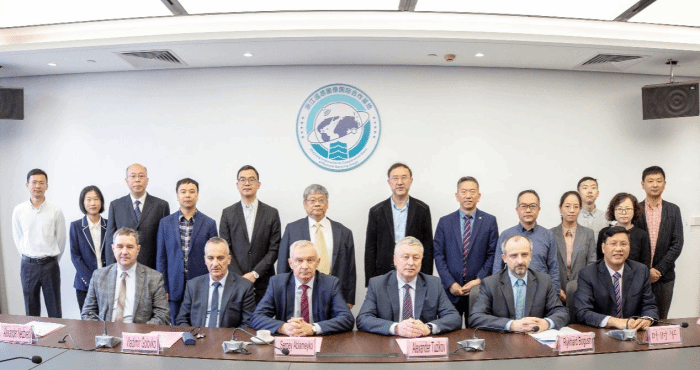
Vice President Ye Shiping expressed his welcome to all the experts in his speech. He reviewed the fruitful cooperation between our university and Belarusian State University and many other universities and research institutes since 2012. Both universities have jointly applied for high-end programs of attracting international talents at all levels, published more than 100 pieces of cooperative papers and applied for invention patents. And then, he introduced to the Belarusian experts the development of our university and the Base, the three research directions of the Base, and the cooperation achievements with Belarusian experts in these directions. He said that after the epidemic, both universities would have deeper cooperation on the original basis.
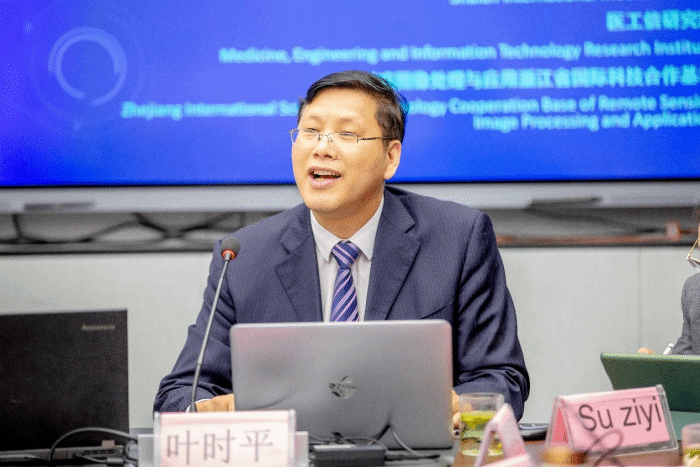
Academician Alexander Tuzikov, former Director of the Joint Research Institute on Information Issues of the National Academy of Sciences of Belarus, introduced the Joint Research Institute on Information Issues of the National Academy of Sciences of Belarus. Prof. Vladimir Golovko, Dean of the Department of Information on Intelligent Technologies and Director of the Laboratory of Intelligent Neural Network of the Brest State Technical University of Belarus, and Prof. Rykhard Bohush, Dean of the Department of Computer System and Network of the Polotsk State University of Belarus, made relevant introductions to their universities and departments respectively. Prof. Sergey Ablameyko, Member of the National Academy of Sciences of Belarus, Member of the Academy of Engineering of Belarus, and Fellow of the European Academy of Sciences, introduced the Belarusian State University. He said that both universities had held various activities for mutual communication over the years, which enhanced our friendship. Although mutual visits were suspended in the past three years due to the epidemic, both universities frequently carried out online discussions and exchanged opinions, which yielded fruitful results.
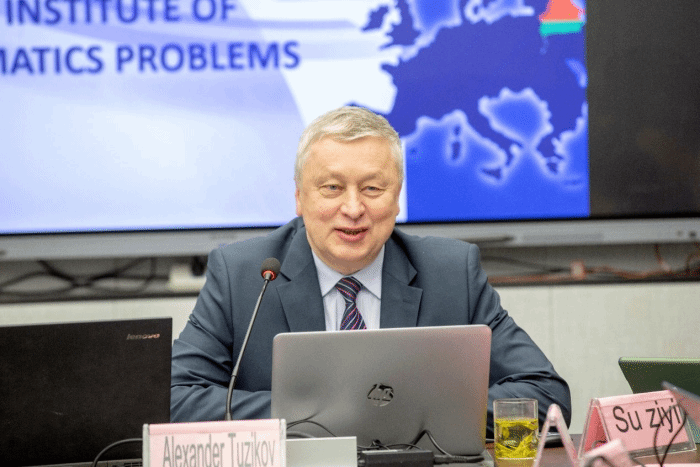
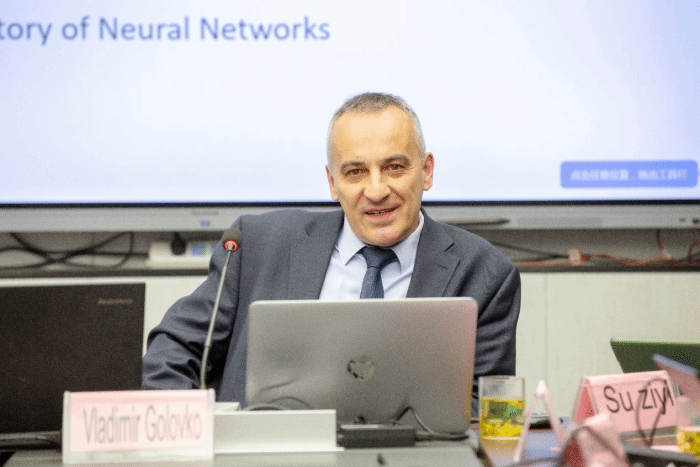
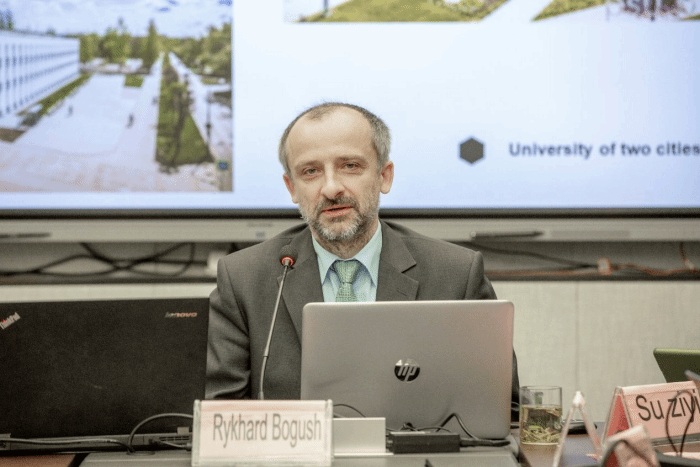
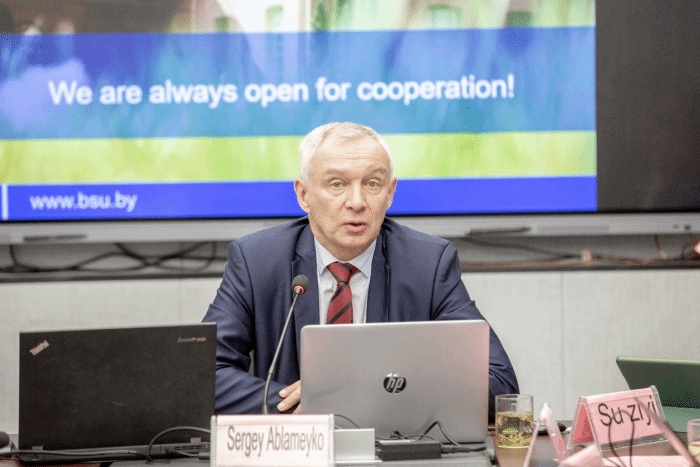
And then, Mr. Chen Weizhe accompanied the attendees to the 5th-6th floors of the Medical College and visited the Clinical Skills Training Center including the virtual surgery operation platform, by which the attendees were deeply impressed. He introduced the five major research areas of Shulan International Medical College, including infectious disease research, organ transplantation, tumor mechanism research, the interdisciplinary research of medicine, engineering and information, and the impact of environmental pollution on health, and expressed the expectation of cooperating with Belarusian experts in scientific research beneficial to human health. Mr. Wang Zhangquan finally introduced the School of Information Science and Technology, including the work and achievements on the development of the school, the guidance of Party building, scientific research, discipline construction, international communication, and student innovation. He hoped to take this opportunity to further deepen the cooperation with the Belarusian State University, the Joint Research Institute on Information Issues of the National Academy of Sciences of Belarus, the Brest State Technical University, and the Polotsk State University of Belarus, and to achieve more fruitful results.
